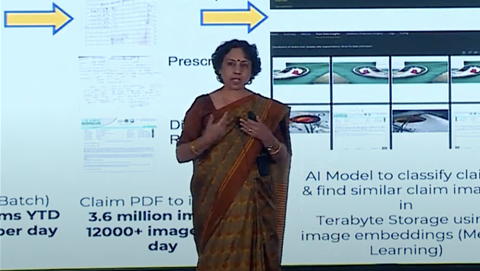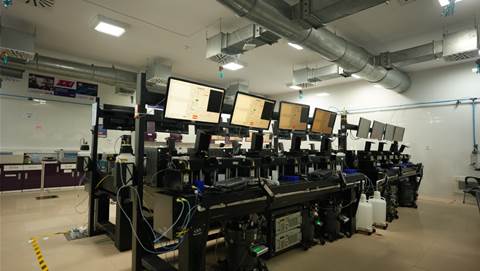There has been a lot of discussion in recent months around sovereign AI and its implications for countries and corporations. Nvidia CEO Jensen Huang recently made a call for nations, world leaders and CEOs to look towards sovereign AI, emphasising the critical need for a robust AI infrastructure to ensure digital sovereignty in light of the infrastructure gaps among many countries.
But sovereign AI is not a new idea. At ASUS, we have been actively developing sovereign AI infrastructure and providing customised AI solutions since 2018. This led to the building of Taiwan’s first AI supercomputer, Taiwania 2. In 2021, Taiwan AI Cloud was established, as a subsidiary of ASUS, to promote a public-private partnership with the Taiwan government, which has since led to several large-scale projects.
What is Sovereign AI?
Sovereign AI represents a nation's or organisation's strategic pursuit of independence in artificial intelligence. It encompasses the ability to develop, control, and deploy AI technologies autonomously, aligning with specific national values, security needs, and economic objectives.
This involves fostering domestic AI capabilities, including research and development, talent acquisition, and infrastructure building, to reduce reliance on foreign entities and ensure national control.
Key components include data sovereignty — ensuring control over data used for AI training — and establishing governance frameworks that promote ethical and responsible AI development. Concerns over national security, economic competitiveness, and data privacy fuel the drive for sovereign AI.
By cultivating independent AI capabilities, nations aim to protect themselves from cyber threats, maintain strategic advantages, and ensure AI development aligns with their ethical standards and societal benefits.
The different facets of Sovereign AI
While the general definition of AI sovereignty might sound straightforward, in reality, very few countries possess the end-to-end manufacturing capability to source all components of an advanced AI system locally. Technology supply chains are renowned for being globally interconnected.
Sovereign AI can also be seen as a multi-layered concept that goes beyond simply manufacturing every chip. For most nations, especially emerging markets, sovereign AI is about achieving independent control and ownership of their AI capabilities.
The different types of sovereign AI can include:
- Data Sovereignty: Ensuring that a nation's sensitive data, especially citizen data, stays within its borders, is processed and stored locally, and is governed by domestic laws. This prevents foreign access or manipulation of critical national information.
- Algorithmic and Model Sovereignty: Controlling the development, training, and deployment of the AI models themselves. This ensures these large language models (LLMs) reflect local languages, cultures, values, and regulations, rather than relying solely on models trained on foreign data and biases. This allows for truly culturally relevant and nationally aligned AI.
- Operational and Infrastructure Sovereignty: Building and operating AI infrastructure (data centres, compute clusters, etc.) within the country's borders, managed by its own citizens. While foundational components might come from global partners, the entire operational control, maintenance, and security of that infrastructure resides domestically.
- Talent Sovereignty: Empowering a nation's workforce to develop, manage, and innovate with AI. Building local AI expertise and fostering a domestic ecosystem of developers and researchers ensures sustainable, long-term AI capabilities that are not dependent on external human resources.
- Application Sovereignty: Developing and deploying AI applications tailored to a nation's specific economic, social, and defense needs, whether it's for healthcare, agriculture, education, or public safety, without external constraints on their use or development.
Navigating the path to AI Sovereignty
For countries and companies wanting to establish and maintain their own secure, high-performance, and culturally relevant AI capabilities, they need to consider a multi-phase process in their path to AI sovereignty, comprising:
Phase 1 – Strategic Planning & Design: This involves close collaboration with governments, research centers, and key industries to define a country's AI goals (e.g., local language models, national security AI, smart cities, healthcare AI). It requires analysing their data, technology infrastructure, and workforce skills to develop a tailored AI plan. Recommendations for necessary hardware (servers, GPUs, networking) and software are crucial, always ensuring data security remains within the country's borders.
Phase 2 – Build, Deploy, & Localise: Upon design approval, the focus shifts to deploying the physical and virtual infrastructure. This involves procuring high-performance equipment, building the in-country data centre, and installing essential software, including advanced AI platforms.
A critical aspect here is AI model localisation, adapting or developing models with local data to understand the country's unique language, culture, and needs. The goal is end-to-end AI infrastructure deployment, ensuring a secure and efficient operational stack under national control.
Phase 3 – Operational Empowerment & Sustainable Growth: After deployment, ongoing support for AI infrastructure operation and maintenance is vital. This phase focuses on empowering the country to manage systems, process data securely, train localised AI models, and develop applications independently.
The aim is to build a self-sustaining local AI ecosystem and workforce, facilitating knowledge transfer and partnerships to ensure the nation controls its AI destiny without creating undue dependency.
Tools for building national AI capabilities
To successfully go from planning and design all the way to gaining operational empowerment, a complete set of tools and services is essential. For example, a full-stack, turnkey solution designed to empower nations and enterprises in building secure, scalable, and autonomous Sovereign AI systems can be transformative.
Such offerings typically encompass high-performance computing hardware, optimised software stacks, and a complete suite of cloud-native and on-premise AI tools that accelerate both government-led digital strategies and enterprise AI adoption.
For instance, an "AI Compute Foundry" model can deliver end-to-end AI infrastructure solutions, integrating high-performance servers, data centre infrastructure, and AI-optimised development environments. Designed for security and reliability, this service supports sovereign AI infrastructure buildouts with rapid deployment capabilities—large-scale AI data centres can go live in a matter of weeks—backed by comprehensive operational support.
Furthermore, an "AI Model Foundry" can provide industry-specific model training services built on robust LLM frameworks, optimised for local language, values, and use cases, accelerating the deployment of generative AI applications across diverse sectors.
Complementing this, operating commercial AI high-performance computing (AIHPC) supercomputers can offer AI compute resell services that optimise GPU resource allocation and foster a thriving AI innovation ecosystem by efficiently connecting enterprises with AI startups.
The path forward: Empowering Sovereign AI

Sovereign AI is not merely a buzzword; it's a strategic imperative for nations and organisations aiming to safeguard their data, nurture local innovation, and maintain control over their technological destiny in the AI era. It's about building a future where AI serves a nation's unique needs and values, securely and autonomously.
- Peter Wu, CEO, ASUS Cloud & Taiwan AI Cloud
Achieving true digital sovereignty requires a deep understanding of complex technical, ethical, and strategic considerations. By embracing proven methodologies and robust, comprehensive AI solutions, countries worldwide can build secure, resilient, and future-proof AI capabilities that serve their unique needs and values for generations to come, ensuring AI is a force for national good and global progress.
Peter Wu is CEO, ASUS Cloud & Taiwan AI Cloud








